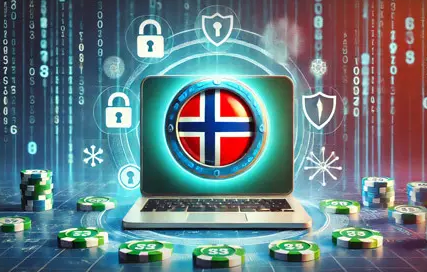Norway Tightens Regulations for Electronic Bingo to Protect Players

In a move to protect players from gambling-related harm, the Norwegian government has announced plans to introduce stricter rules governing electronic bingo in bingo halls. These new regulations include establishing player loss limits, which aim to better safeguard vulnerable players. According to Lubna Jaffery, Norway's Minister of Culture and Equality, the updated guidelines will be gradually implemented over time to allow both players and the industry to adjust to the changes.
“Until now, electronic bingo, both in physical bingo halls and on online platforms, has operated without any limits on player losses,” Jaffery explained. “This lack of regulation has negatively impacted vulnerable players and their families. By tightening the rules, we aim to make these games more responsible and reduce the risks for at-risk individuals."
Major Changes Set for January 2025
The first wave of changes is scheduled to take effect on January 1, 2025. From this date, every provider supplying bingo halls with content will be required to register with the authorities. The second phase of the regulations will be introduced on September 1, 2025, at which point all bingo halls must provide players with the option to set personal loss limits for electronic bingo games. Therefore, the online sector including top online poker sites reviewed should check the new regulations. Additionally, bingo hall staff will be trained to inform players about these limit-setting options and assist them in setting responsible gambling limits.
Another significant rule taking effect on September 1, 2025, is the mandatory registration of all players at bingo halls. This measure aims to ensure that all players are properly tracked, allowing for more effective monitoring and intervention for those at risk of developing problematic gambling habits.
Gradual Rollout to Support Industry Compliance
The new regulations come after a lengthy consultation process involving stakeholders from various sectors. Minister Jaffery shared that more than 500 responses were received during the public consultation period, highlighting the widespread interest in this issue. While the government had initially aimed to have these regulations in place by the end of 2024, they ultimately decided to extend the timeline to give the industry adequate time to prepare for the changes.
“Our policy is grounded in protecting individuals who are at risk of gambling addiction," Jaffery stated. "The exclusive rights model we use in Norway is built on a foundation of responsibility, and it is essential that we prioritize the well-being of vulnerable players above all else. The impact of gambling problems on individuals and their families can be profound, and these new rules are designed to mitigate those effects.”
Enhanced Focus on Responsible Gambling Practices
This move by Norway’s government reflects an increasing focus on responsible gambling practices within the country's gambling policy. By requiring loss limits and player registration, the government aims to reduce the social harms associated with gambling and provide vulnerable individuals with additional safeguards. The loss limit option will give players a tangible tool for controlling their spending, which is expected to help reduce instances of gambling addiction and related issues.
This regulatory shift aligns with broader trends in gambling regulations across Europe. Many countries are introducing stricter guidelines for gambling establishments to reduce addiction risks, and Norway's focus on electronic bingo reflects its commitment to keeping gambling environments safer. These measures indicate that the government is willing to prioritize the health and safety of its citizens over unrestricted access to gambling activities.
Industry and Public Reaction to New Rules
The gradual introduction of these changes has been designed to accommodate feedback from the industry and the public. During the consultation period, concerns were raised about the feasibility of rapid implementation and the potential impact on businesses and employees in the bingo sector. By allowing more time, the government aims to help bingo operators prepare effectively while balancing the goal of protecting at-risk players.
Jaffery emphasized that the government understands the industry’s concerns but ultimately believes that the new rules are in the best interest of society. “The decision to extend the timeline reflects our desire to work with the industry rather than against it,” she noted. “By offering a gradual implementation plan, we hope to achieve a balance that protects players while allowing businesses to transition smoothly.”
Safeguarding Vulnerable Players: A Long-Term Goal
For Norway, these regulatory changes represent a long-term commitment to reducing the risks associated with gambling. Through the introduction of loss limits, player registration, and increased staff involvement in educating players, the government is taking comprehensive steps to make electronic bingo more secure and supportive for those who may be susceptible to gambling addiction. By prioritizing the health and safety of its citizens, Norway aims to set an example for other countries grappling with similar issues in their gambling industries.
As the implementation date approaches, both bingo operators and players will need to adapt to the new structure, but the changes reflect a shift towards a more responsible and compassionate approach to gambling. The hope is that by introducing these measures, Norway can reduce gambling-related harm and create a safer environment for all players.
In the end, Norway's commitment to protecting its citizens from gambling harm is a reminder of the importance of responsible gaming practices.






